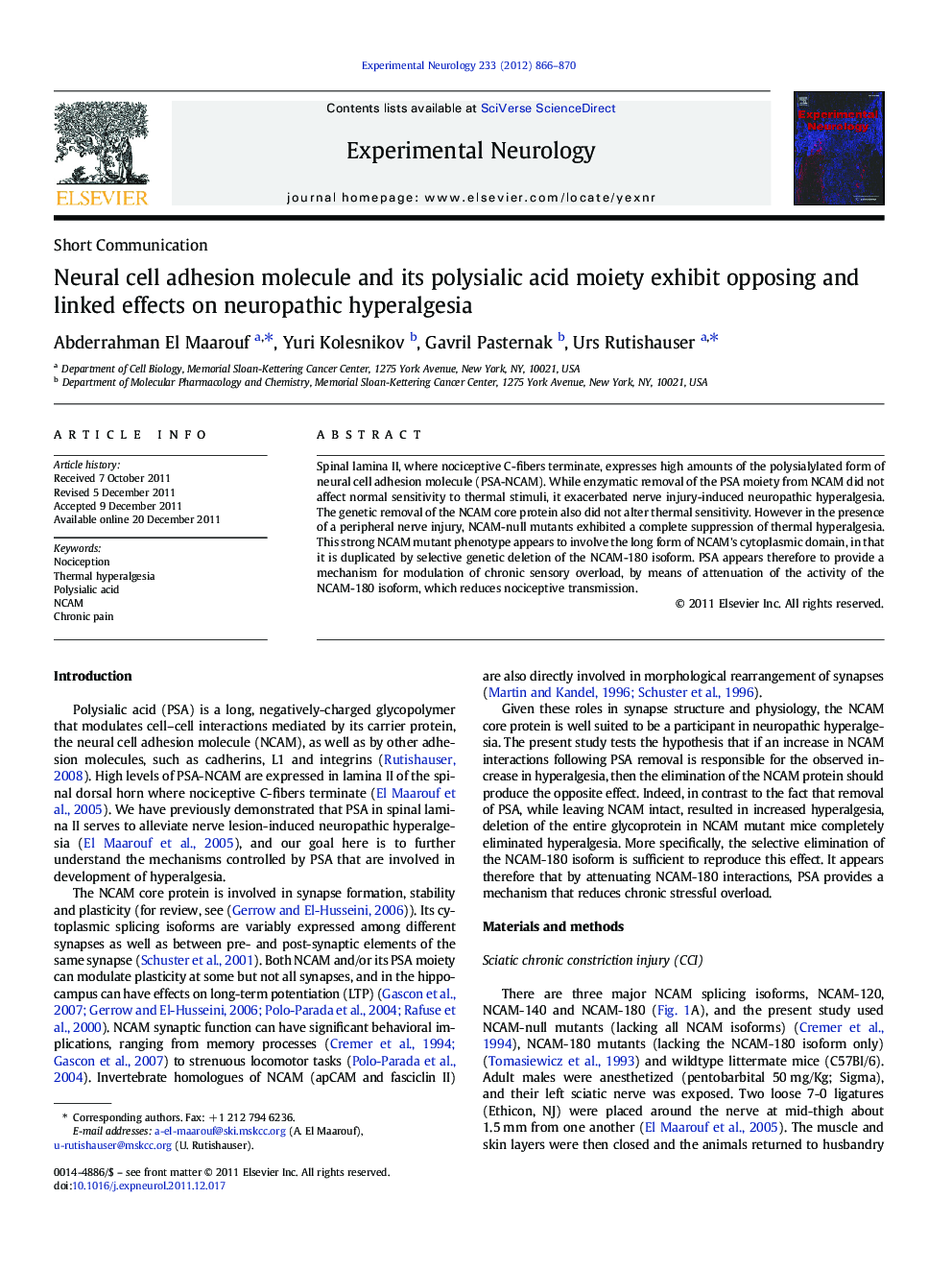| Article ID | Journal | Published Year | Pages | File Type |
|---|---|---|---|---|
| 6019024 | Experimental Neurology | 2012 | 5 Pages |
Spinal lamina II, where nociceptive C-fibers terminate, expresses high amounts of the polysialylated form of neural cell adhesion molecule (PSA-NCAM). While enzymatic removal of the PSA moiety from NCAM did not affect normal sensitivity to thermal stimuli, it exacerbated nerve injury-induced neuropathic hyperalgesia. The genetic removal of the NCAM core protein also did not alter thermal sensitivity. However in the presence of a peripheral nerve injury, NCAM-null mutants exhibited a complete suppression of thermal hyperalgesia. This strong NCAM mutant phenotype appears to involve the long form of NCAM's cytoplasmic domain, in that it is duplicated by selective genetic deletion of the NCAM-180 isoform. PSA appears therefore to provide a mechanism for modulation of chronic sensory overload, by means of attenuation of the activity of the NCAM-180 isoform, which reduces nociceptive transmission.
